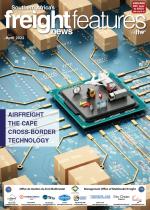Mining will continue to be a driving force in cross-border logistics, thanks to the continent’s diverse minerals and metals.According to Duncan Bonnett of Africa House, the continuing boom in low-carbon energy technologies will see demand for many of these minerals and metals grow, and with it demand for logistics and transport services.The World Bank says the minerals and metals expected to elicit heightened demand include aluminium, copper, lead, lithium, manganese, nickel, silver, steel and zinc, and rare earth minerals such as indium, molybdenum and neodymium.Africa has many of these commodities, and resource-rich countries can take advantage of the increased demand to foster growth and development.“Several countries have realised the unique opportunity that exists to grow their economies if they develop their mining sectors sustainably,” said Bonnett. “Zambia is a good example: The new president, Hakainde Hichilema, has taken a strong stance to reform the mining code, making it possible not only for the older, marginal mines to continue operating, but also to attract new investments. In Tanzania and the Democratic Republic of the Congo, it’s much the same.”Bonnett said there was also a clearer understanding among governments about the benefit of having more balanced minerals portfolios rather than depending on just one commodity.“The overdependence on some minerals has hit some countries hard. There is understanding across the continent about the benefit of diversification,” he told Freight News.Another benefit for Africa, said Bonnett, was the high quality of energy minerals and metals. This will be of particular importance as the global energy transition shapes the future of the mining industry. “The energy shift towards electric vehicle production, battery storage and other green energy technologies will drive demand for these high-quality energy minerals and metals,” said Bonnett. It is, however, imperative that Africa continues to work towards creating environments where mining can prosper. This includes cutting red tape and creating operating environments conducive to business.“Practically, it means not holding up projects but creating spaces where projects can take off quickly and efficiently,” advised Bonnett. “Money, we must not forget, is not sentimental and it goes where it gets the best return. Much like water, it takes the path of least resistance. If the continent wants to prosper from mining, it must create an environment where legislation and regulation are of such a nature that mining can thrive.”

